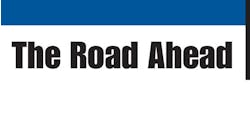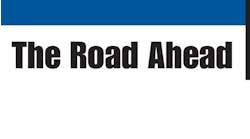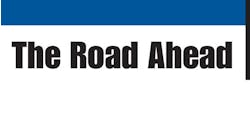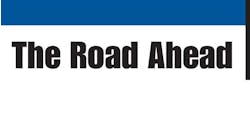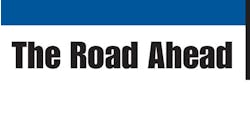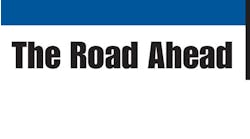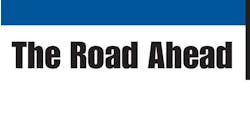DELOS Smith provided a disclaimer before he launched into the meat of his annual economic forecast: Don't expect anything truly concrete.
“If I reach any kind of conclusion at all (today), I apologize,” he joked. “It would be a terrible mistake on my part.”
Smith, senior business analyst for The Conference Board, said in “The New Economy — Survival of the Fittest” that the fascinating aspect of his profession is that “nobody can define what a recession is.” He said six major academicians decided in November that the recession actually started in March 2001, adding that they likely will determine this summer that the recession actually ended in December or January.
“That's economists moving well,” he joked.
He said The Conference Board is “euphoric” about the prospects for the second half of this year, but at the time of the NATM Convention, there was no evidence to support that euphoria.
“(The recovery) could be slow,” he said. “We want it to go faster, but we think it is going to come back, and come back nicely, and a sluggish first half will turn into a better second half.”
Slowdown Less Severe
One week after he spoke, The Conference Board reported that its Index of Leading Economic Indicators, a key gauge of future activity, increased 0.6% in January — the fourth straight monthly increase. Economists were theorizing that the slowdown in 2001 was not as dramatic as first believed, and that the recession would turn out to be one of the shortest and mildest on record.
The nation's trade deficit narrowed by 11.4% in December to $25.3 billion, its best showing since September, according to the Commerce Department.
It could turn out to be the mildest recession in US history — with a drop in economic output of 0.3% — if current indications hold up and the third quarter is the only negative period (with a GDP decline of 1.3%).
NATM president Jim Callaway said signs were positive in the trailer industry.
“Quite a few people are saying they've got the best order position they've had in quite some time and the backlog's growing, so that speaks to business starting to return,” he said. “I know it's not where it was at one point in time, but it speaks very positively.”
Smith, addressing the importance of inventories to the NATM audience, said the situation appears to be improving.
“Everybody who feels there is going to be more of a positive second half (with the economy) is basing that on inventories — that the inventory contraction is over and companies are going to have to start rebuilding, because the pipelines are too low,” he said.
Smith said that in attempting to understand where the economy is going for the rest of this year, the numbers can be confusing. Consumer confidence — which he says is the most important of the four confidence factors because it affects the discretionary aspect of the trailer-buying business — slumped 40 points after the September 11 attacks and fell under 70, but is now at 97 in The Conference Board's estimation. But according to the University of Michigan's preliminary figure for February, it will fall from 91 to 86. Smith said that is “disquieting,” noting that “anything over 90 is a key.”
Wholesale Boost Needed
One audience member said he was seeing consumer support in the retail side, but felt there needed to be some news media support on the wholesale level that would provide a boost to his wholesale representatives. The reason, he said, was that he believed manufacturers had more confidence in the wholesale market than they did in the consumer retail market.
Smith's reply: “We're waiting for that evidence. The business spending on technology was way down — 12% in the fourth quarter. That's one of the keys — business confidence. Does a business start to become more positive, more aggressive? One of the major problems being discussed is, we put in these new systems and there's a time of catch-up.”
Smith said bad news was being delivered in the form of a savings rate of 1%, according to National Income Accounts, which he said “is not a positive number.”
The formula is quite simple: personal income minus taxes equals discretionary income, which is very important to trailer manufacturers. Subtract spending from discretionary income and the result is savings.
What isn't so simple is the definition of savings. National Income Accounts assumes gross income matches taxable income; their figure doesn't count 401-k and 403-b accounts. The Federal Reserve Bank of New York, which takes those into account, has determined that the savings rate is 10%.
“You can pick 1% if you're pessimistic,” Smith said, “or, if you want to be euphoric, you can pick 10%.”
Smith's session didn't always meet the audience where it was. His talk of “globalization,” of companies stretching their tentacles all the way around the world, prompted one member to say, “Globalization is scary to most of us because we're small American businesses. Many of us are in rural areas and our products are not necessarily exported.”
Said Smith, “It is very scary for rural America. There are changes going on that need to be recognized. Is this globalization going to continue? The answer is yes. The technology allows International Paper to be in 130 different countries. A Boeing airplane is made by 60 different countries. Japan has a 25% value in every Boeing airplane. Does that have enormous implications? Yes. You're seeing your country change.”
